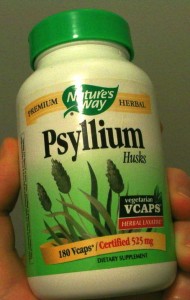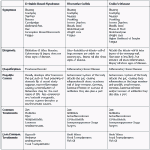Ironwood Pharmaceuticals is seeking approval from the European Medicines Agency for their Irritable Bowel Syndrome drug Linaclotide.
Almirall is the licensee of Linaclotide for European markets. They along with Linaclotide manufacturer, Ironwood Pharmaceuticals, submitted a Marketing Authorization Application to the European Medicines Agency in a bid to gain access to European markets. Along with the application they submitted the results of their Phase III trials showcasing the benefits they feel Linaclotide provides patients who are dealing with Irritable Bowel Syndrome. If approved the drug would be sold under the brand name of Constella. Continue reading “Ironwood’s Irritable Bowel Syndrome Constipation Drug Seeking European Approval” »
Lexicon Pharmaceuticals recently announced their new drug LX1033 passed Phase I drug safety trials allowing it to move forward into Phase II testing.
Lexicon Pharmaceuticals’ LX1033 is a Irritable Bowel Syndrome drug meant for those with diarrhea predominant Irritable Bowel Syndrome symptoms or mixed symptoms that include diarrhea. LX1033 works by targeting the hydroxylase enzyme which is also known as TPH. TPH is essential for the production of serotonin within the body & it comes in two forms TPH1 & TPH2. TPH1 lives mainly in the digestive system, while TPH2 lives in the nervous system & the brain. LX1033 specifically targets TPH1 only & leaves TPH2 alone to avoid nervous system or psychoactive effects. Serotonin levels do seem to play a role in Irritable Bowel Syndrome, but how much is not fully understood. Continue reading “Lexicon Pharmaceuticals Drug LX1033 For Irritable Bowel Syndrome” »
A study by Liaoning University of Chinese Medicine suggests that acupuncture may have a positive effect for those with diarrhea predominate Irritable Bowel Syndrome.
The study took 30 male rats & put them through various stressors such as drinking water deprivation, electric shock & uncomfortable temperature variations. The rats were then divided into two groups, with 20 rats acting as the baseline model for the study while the other 10 were selected to receive acupuncture. The acupuncture was administered to the following acupuncture “channels”: “Xiajiao” (Lower Abdomen), “Dachang” (Large Intestine), “Gan” (Liver) and “Pi” (Spleen). Acupuncture treatments were given twice daily for seven days.
The results showed that the rats who did not receive acupuncture saw a downgraded level of serotonin transporters. Meanwhile, rats who did receive acupuncture saw markedly higher levels of serotonin transporters versus the model group. Continue reading “Acupuncture May Help Regulate Serotonin Levels In Those With IBS” »
Today we’re taking a look at Nature’s Way Psyllium Husks capsules.
 Psyllium husks come from the seeds of the psyllium plant. Psyllium husks are hydrophilic meaning they are attracted to water & readily absorb it. When saturated with water psyllium husks produce mucilage which is a thick gooey substance. Mucilage creates a film over mucous membranes, such as those found in the intestines. This film can help with the passage of stool as well as lowering inflammation by reducing the chances of irritation.
Psyllium husks come from the seeds of the psyllium plant. Psyllium husks are hydrophilic meaning they are attracted to water & readily absorb it. When saturated with water psyllium husks produce mucilage which is a thick gooey substance. Mucilage creates a film over mucous membranes, such as those found in the intestines. This film can help with the passage of stool as well as lowering inflammation by reducing the chances of irritation.
Psyllium husk is not digestible so it can be thought of as a “bulking agent”, meaning it will help add size to stool potentially increasing the chances of properly formed stool, which can aid with proper bowel movements.Psyllium husk is often advertised as a laxative, but it’s not a stimulant & can be used on a daily basis for those who want to try adding fiber to their their daily diet or treatment regimen. Fiber supplementation can be helpful for things like chronic diarrhea or constipation related to Irritable Bowel Syndrome or Inflammatory Bowel Diseases like Crohn’s Disease or Ulcerative Colitis. Continue reading “Review: Nature’s Way Psyllium Husks” »
Plecanatide & Linaclotide are two drugs made by two different companies but both target Irritable Bowel Syndrome in a similar way.
Plecanatide is being developed by Synergy Pharmaceuticals while Linaclotide is being developed by Ironwood Pharmaceuticals. These drugs are targeted towards those with constipation predominant IBS with associated IBS related abdominal pain. Continue reading “Plecanatide & Linaclotide, Similar Experimental Treatments For IBS” »
A recent study published in Gastroenterology(Vol. 140, Issue 5) has found that Dronabinol may help with treating Irritable Bowel Syndrome symptoms. Dronabinol is a purified form of THC which is the active ingredient of cannabis(Marijuana).
Patients were split into two groups, one group was given 2.5mg of Dronabinol while the other group was given 5mg. Tests were done to measure colon motility & compliance 1 hour after taking the oral treatment & 1 hour after eating a 1,000 calorie meal. Continue reading “Study Supports Marijuana’s THC Helpful For IBS” »
Haemochromatosis can mimic symptoms of Irritable Bowel Syndrome.
South African website Business Today is running a story about Roger Keyte, a 50 year old man who visited doctors after experiencing intermittent digestive problems for months. His symptoms ranged from stomach ache to diarrhea. Instead of being diagnosed with an infection, parasites or a functional disorder like Irritable Bowel Syndrome it turns out he had an often overlooked genetic condition called Haemochromatosis(iron overload). Continue reading “Iron Overload Can Mimic Irritable Bowel Syndrome” »
A recent study looks at the effectiveness of GoLytley vs MiraLax + 64oz of Gatorade. The main difference between the two products it that GoLytley includes the electrolytes you lose from the diarrhea induced from the bowel prep products. They both use the same active ingredient(Polyethylene glycol 3350). The results showed the GoLytley was a more effective bowel prep than MiraLAX + 64oz of Gatorade. Unfortunately it doesn’t seem like either of these products taste that great, but perhaps they do taste better than Phospho-Soda, which was taken off the market due to kidney damage concerns.
While GoLytley may have cleaned the bowel better, it appears that MiraLAX at least got higher rating as far as the patient experience goes.
A recent study suggests that those with Irritable Bowel Syndrome eat a diet that meets or exceeds UK Dietary Reference Values. The study surveyed the eating habits of 104 people with Irritable Bowel Syndrome & then compared their answers against nutritional guidelines to come up with their findings.
Essentially this means that someone with Irritable Bowel Syndrome is most likely not at fault for any nutritional deficiencies they may have as the foods they are eating should contain the nutrients they need. The study did not find any differences in nutrient intake between those with different subtypes of Irritable Bowel Syndrome(diarrhea dominant, constipation dominate or alternating). The study does not appear to have actually looked into if those surveyed actually had malabsorption of nutrients despite eating a nutrient rich diet.
This study just reaffirms what many already know, that people with Irritable Bowel Syndrome aren’t purposefully eating nutrient deficient diets.
There seems to be some continual confusion about the differences between Irritable Bowel Syndrome & Inflammatory Bowel Diseases.
The main difference between the two is that Irritable Bowels Syndrome is a functional disorder, meaning there is little to no physical evidence of the disorder besides it’s symptoms. Inflammatory Bowel Diseases are not functional disorders and are diagnosable based off of physical evidence. Irritable Bowel Syndrome is usually much less severe than Inflammatory Bowel Diseases. Additionally “Inflammatory Bowel Disease” is not the actual name of a disease, but a classification for bowel diseases of an inflammatory nature. The two main Inflammatory Bowel Diseases are Ulcerative Colitis & Crohn’s Disease. They are not the same thing, though they have similar symptoms & treatments.
I made this handy chart below so people can get a better idea of the differences.


